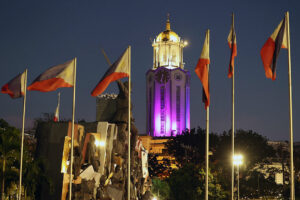LEGAL AND ECONOMIC gender equality in the Philippines is the second highest in Southeast Asia, the World Bank said in a report.
In the World Bank’s Women, Business, and the Law (WBL) 2024 report, the Philippines got a score of 70 out of 100 under its expanded WBL 2.0 index. The WBL report assesses the laws and regulations that restrict economic opportunity and the gap between legal reforms and outcomes for women in 190 economies. A score of 100 indicates complete legal parity.
Among Southeast Asian economies, the Philippines was second only to Vietnam, which scored 85.
However, it was ahead of Singapore (65), Thailand and Indonesia (60), Malaysia (47.5) and Brunei (35).
The Philippines’ score was also above the global average of 64.2 and the East Asia and Pacific average of 57.8.
The 2024 report introduces new measurements to track progress toward legal gender equality, including a framework that measures the enabling environment for women’s economic opportunities.
The WBL 1.0 index covers indicators such as pay, mobility, workplace, marriage, parenthood, entrepreneurship, assets and pension, while the latest index adds safety from violence and access to childcare services.
The World Bank said the gender gap for women in the global workplace is “massive” and “much wider than previously thought.”
“Women have the power to turbocharge the sputtering global economy. Yet, all over the world, discriminatory laws and practices prevent women from working or starting businesses on an equal footing with men,” Indermit Gill, chief economist of the World Bank Group and senior vice-president for development economics, said in a statement.
“Closing this gap could raise global gross domestic product by more than 20% — essentially doubling the global growth rate over the next decade — but reforms have slowed to a crawl.”
Despite equal opportunity laws, the multilateral lender noted that women now enjoy less than two-thirds of the legal rights available to men, not three-quarters as previously reported. There were 37 economies that granted women less than half of the legal rights of men, with eight coming from the East Asia and Pacific region, according to the report,
The World Bank also noted that nearly all economies performed poorly in terms of safety and childcare.
“The weakness is greatest in women’s safety. The global average score is just 36, meaning women enjoy barely a third of the legal protections they need from domestic violence, sexual harassment, child marriage, and femicide,” it said.
Under the WBL 1.0 index, the Philippines’ score of 78.8 was unchanged for the third consecutive year. This was lower than Vietnam (88.1) and Singapore (82.5) but ahead of Thailand (78.1), Indonesia, (70.6), Malaysia (60.6) and Brunei (53.1).
Its score was also higher than the East Asia and Pacific as well as the global average of 73 and 77.9, respectively.
Anna Leah Colina, women coordinator of the Federation of Free Workers (FFW) said that the Philippines is unable to effectively implement laws promoting gender equality in the workforce.
“The legal framework may be there but… its implementation on the ground may fall short of what the law wants to achieve or protect,” she said by telephone.
She said many cases of gender discrimination and abuse against women go unreported.
“[In the Philippines,] the mobility of many women depends primarily on their economic independence, [which explains] why many females who are victims of violence and abuse cannot leave their [more self-sufficient but] abusive partners,” Ms. Colina said in Filipino.
There were 502 reported cases of violence against women from Jan. 1 to March 3, according to the Child Protection Network Foundation, Inc.
FFW’s Ms. Colina also said women get low-paying jobs due to perceptions that they are the “weaker” sex.
“For example, in food packaging… men would occupy the machine-related [jobs,] which are higher-paying than women, who occupy menial tasks like closing a box or tacking,” she said, citing FFW data from its own Women Workers Agenda report, set for release next month.
Ms. Colina added that the Philippines has yet to pass laws that cover informal economy workers, which make up 80% of the total workforce.
“When you classify where female workers are, they’re mostly in the informal sector,” she said.
FFW urged Congress to amend Presidential Decree No. 442 or the Labor Code to include informal economy workers, and approve the Magna Carta for Workers in the informal economy. Both bills are still pending at the committee level at the House of Representatives and the Senate.
The World Bank report said women around the world face significant obstacles in entrepreneurship, pay, nationality rights and retirement.
“Women earn just 77 cents for every dollar paid to men,” it said.
To accelerate gender equality in business and law, the World Bank said countries should improve laws related to women’s safety, access to childcare and business opportunities; enact legal reforms that mandate equal pay for work of equal value; and implement legally binding quotas for women on corporate boards. — Beatriz Marie D. Cruz
